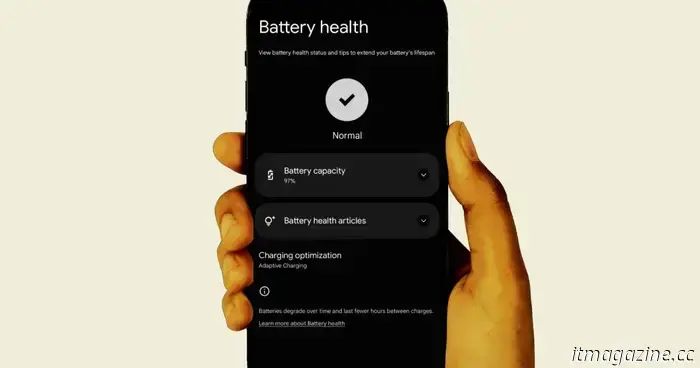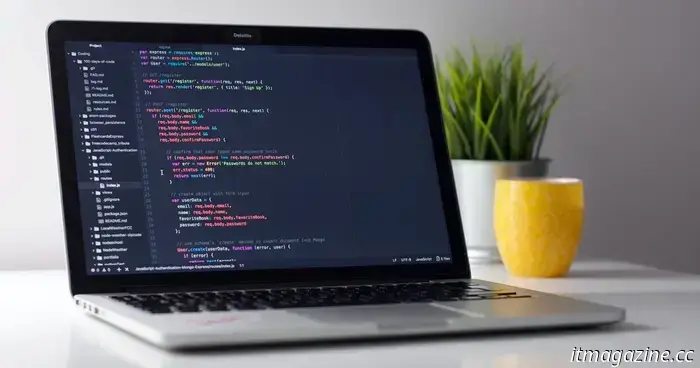
Why OpenAI’s copyright strategy will affect you more than you realize
Nadeem Sarwar / Digital Trends
OpenAI has been inconsistent in many aspects — is it a non-profit or a for-profit entity? Is Sam Altman qualified to be CEO or not? However, the company has consistently maintained that it needs access to copyrighted materials for training its AI. Despite numerous opposing voices, OpenAI is urging the U.S. government to grant broad access by declaring it "fair use." The company argues that without the freedom to train its models on copyrighted content, the U.S. risks falling behind China in the AI competition, asserting that "excessively burdensome state laws" will hinder progress and outcomes.
This situation could also affect creators. For instance, artists, writers, programmers, photographers, and filmmakers with online portfolios own their work, but if this initiative proceeds, they would have no recourse when their content is utilized to train AI. Even more tangible creative endeavors, like fashion design, jewelry crafting, or sculpting, could be at risk if images of their work are shared online.
It seems rather ironic that OpenAI wants AI training to be considered "fair" use of copyrighted content, especially since the resulting products will create new, altered versions of individual creations. A notable instance occurred last month when the French cast of Apex Legends was reportedly approached to assist in training an AI model intended to produce voice lines for the game.
There are numerous commercial applications for different types of creative content, but as AI models become better at imitating it, earning as a creator may become increasingly challenging. Companies have a track record of opting for the cheapest alternatives, and there's little indication this will change soon.
It's difficult to envision a solution for creators facing this dilemma. Individuals who are serious about safeguarding their work might begin password-protecting their online portfolios, sacrificing a few older samples for training sets, while sharing the remainder only upon human request.
There would undoubtedly be a demand for a viable solution—perhaps a new portfolio or creative sharing platform accessible solely by humans. This would require a robust authentication process, but there are certainly individuals willing to trade some convenience for this level of security.
The White House has yet to respond to OpenAI's proposal, so the future developments remain to be seen.
Willow Roberts has been a Computing Writer at Digital Trends for a year and has been writing for nearly a decade.
OpenAI’s Operator agent is expanding to an additional eight countries.
After debuting in the U.S. in January, OpenAI's Operator AI agent will soon be available in eight new nations, as announced by the company on Friday. "Operator is now rolling out to Pro users in Australia, Brazil, Canada, India, Japan, Singapore, South Korea, the UK, and most regions where ChatGPT is accessible," the OpenAI team posted on X. The company is "still working on making Operator available in the EU, Switzerland, Norway, Liechtenstein, and Iceland," but has not specified a timeline for those additional regions. As with the U.S. launch, users in the newly expanded nations must subscribe to OpenAI's Pro tier at $200 per month to gain access to the AI agent.
With 400 million users, OpenAI continues to lead in the competitive AI landscape.
The competition in the AI sector remains fierce, and OpenAI has shown that it is not taking impending challenges lightly. The generative AI brand announced on Thursday that it serves 400 million weekly active users as of February, reflecting a 33% increase in less than three months. OpenAI's chief operating officer, Brad Lightcap, confirmed these latest user statistics to CNBC, noting that this data had not been previously reported. The numbers have risen quickly from previously acknowledged stats of 300 million weekly users reported in December.
xAI’s Grok-3 is impressive but needs significant improvement to win my approval.
xAI, led by Elon Musk, has unveiled its newest AI model, Grok-3, during a livestream. From the outset, it was clear that the company aims to fill practical gaps to make its chatbot more user-friendly rather than just promoting its rhetoric about wokeness and understanding the universe. The firm plans to launch two versions of the latest AI model: Grok-3 and Grok-3 mini. The latter is designed for low-compute scenarios, while the former will provide the full range of Grok-3 features, such as DeepSearch, Think, and Big Brain.





Other articles
 The latest beta of Android 16 introduces a Battery Health feature similar to that of the iPhone.
The latest beta of Android 16 includes a Battery Health dashboard that displays the chemical aging condition of the device's battery and provides useful tips as well.
The latest beta of Android 16 introduces a Battery Health feature similar to that of the iPhone.
The latest beta of Android 16 includes a Battery Health dashboard that displays the chemical aging condition of the device's battery and provides useful tips as well.
.jpg) Three excellent free movies to watch this weekend (March 14-16)
Watch these complimentary films from March 14-16: an acclaimed musical, a comedy from the 1990s, and an exciting crime thriller.
Three excellent free movies to watch this weekend (March 14-16)
Watch these complimentary films from March 14-16: an acclaimed musical, a comedy from the 1990s, and an exciting crime thriller.
 AMD's GPU stock issues are expected to improve, but I'm worried about the prices.
An AMD executive has recently provided an update regarding the availability of the RX 9000 series. While the news is promising, it isn’t quite time to celebrate just yet.
AMD's GPU stock issues are expected to improve, but I'm worried about the prices.
An AMD executive has recently provided an update regarding the availability of the RX 9000 series. While the news is promising, it isn’t quite time to celebrate just yet.
 Experience enjoyment and savings: explore nearby adventures with Groupon's "Things to Do."
Groupon / Stuck in a rut? Organize your next impromptu date night, family activity, or simply discover something to liven up your week with Groupon’s “Things to Do” section. It's your entrance to thrilling local experiences at fantastic prices. Seize the opportunity to impress by arranging an event that won’t strain your budget. […]
Experience enjoyment and savings: explore nearby adventures with Groupon's "Things to Do."
Groupon / Stuck in a rut? Organize your next impromptu date night, family activity, or simply discover something to liven up your week with Groupon’s “Things to Do” section. It's your entrance to thrilling local experiences at fantastic prices. Seize the opportunity to impress by arranging an event that won’t strain your budget. […]
 Apple Intelligence has the potential to address my coding challenges — yet this crucial feature is absent.
Apple Intelligence is lagging behind its AI competitors, and the absence of its Swift Assist coding tool raises concerns about its future.
Apple Intelligence has the potential to address my coding challenges — yet this crucial feature is absent.
Apple Intelligence is lagging behind its AI competitors, and the absence of its Swift Assist coding tool raises concerns about its future.
 Be cautious of this phishing scam that is pretending to be Booking.com.
Microsoft has issued a warning regarding a new phishing scam that is aimed at individuals in the hospitality sector.
Be cautious of this phishing scam that is pretending to be Booking.com.
Microsoft has issued a warning regarding a new phishing scam that is aimed at individuals in the hospitality sector.
Why OpenAI’s copyright strategy will affect you more than you realize
OpenAI has submitted a proposal to the White House supporting unlimited access to copyrighted content for AI training purposes.
